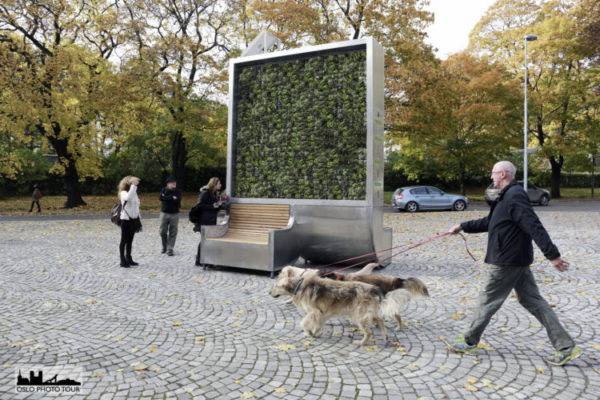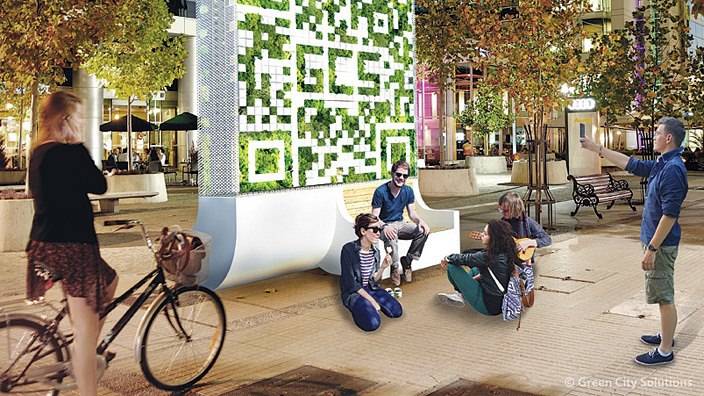Air pollution is a significant problem in many parts of the world. According to the World Health Organization (WHO) 6.5 million deaths per year can be attributed to air pollution, much greater than the number who die from HIV/AIDS, tuberculosis and road injuries combined.
A number of enduring serious health conditions can also be attributed to poor air quality including respiratory conditions, lung cancer, heart disease, and even damage to the brain, nerves, liver, or kidneys. What compounds these health conditions is the phenomenon of urban heat islands (UHI). This is where man-made urban surfaces — such as concrete and asphalt — lead to an increased heating of the surrounding area.
One startup out of Germany is endeavoring to address these issues through a novel solution.
See also: 5 ways the new connected agriculture changed in 2016
Green City Solutions creates huge vertical planter boxes for public spaces utilizing plants adept at removing dust, nitrogen dioxide and ozone gasses from low-lying smog. The company was established in Dresden, Germany in 2014 and employs a team of experts in architecture, mechanical engineering, computer science and horticulture to create intelligent solutions in the fields of environmental services, cleantech and sustainable urban development, to provide residents with a healthier life in green and livable cities.
An improvement on nature?
Each planter is called a CityTree and has the environmental performance of up to 275 conventionally planted urban trees – but only needs 5% of the cost and 99% less space. The health of each tree is monitored through embedded sensors that minimize the maintenance in their upkeep. Each of the vertical plant filters can be the local reduce air pollution by up to 30% within a radius of up to 50 meters.
In order to ensure the profitability of vertical greening, the system includes digital screens with technologies such as QR code, iBeacon and NFC. This allows the CityTrees to be used for out-of-home advertising and mobile commerce purposes. Integrated benches and the offer of additional services such as Wi-Fi hotspot or e-bike charging stations extend the functionality of the biofilters.
CityTrees have already graced many European cities, with current installations are taking place in Hong Kong, Oslo, Paris, Skopje and Dresden and Hannover. A new pilot is about to launch in Modena, Italy designed to measure the long-term metrics of the installations on the city landscape. With increases in urbanization, space at a premium in many modern cities and increases in fines for regulatory breaches, it’s foreseeable that we’ll see a growth in biotech that aims to alleviate the impacts of modern living.



















